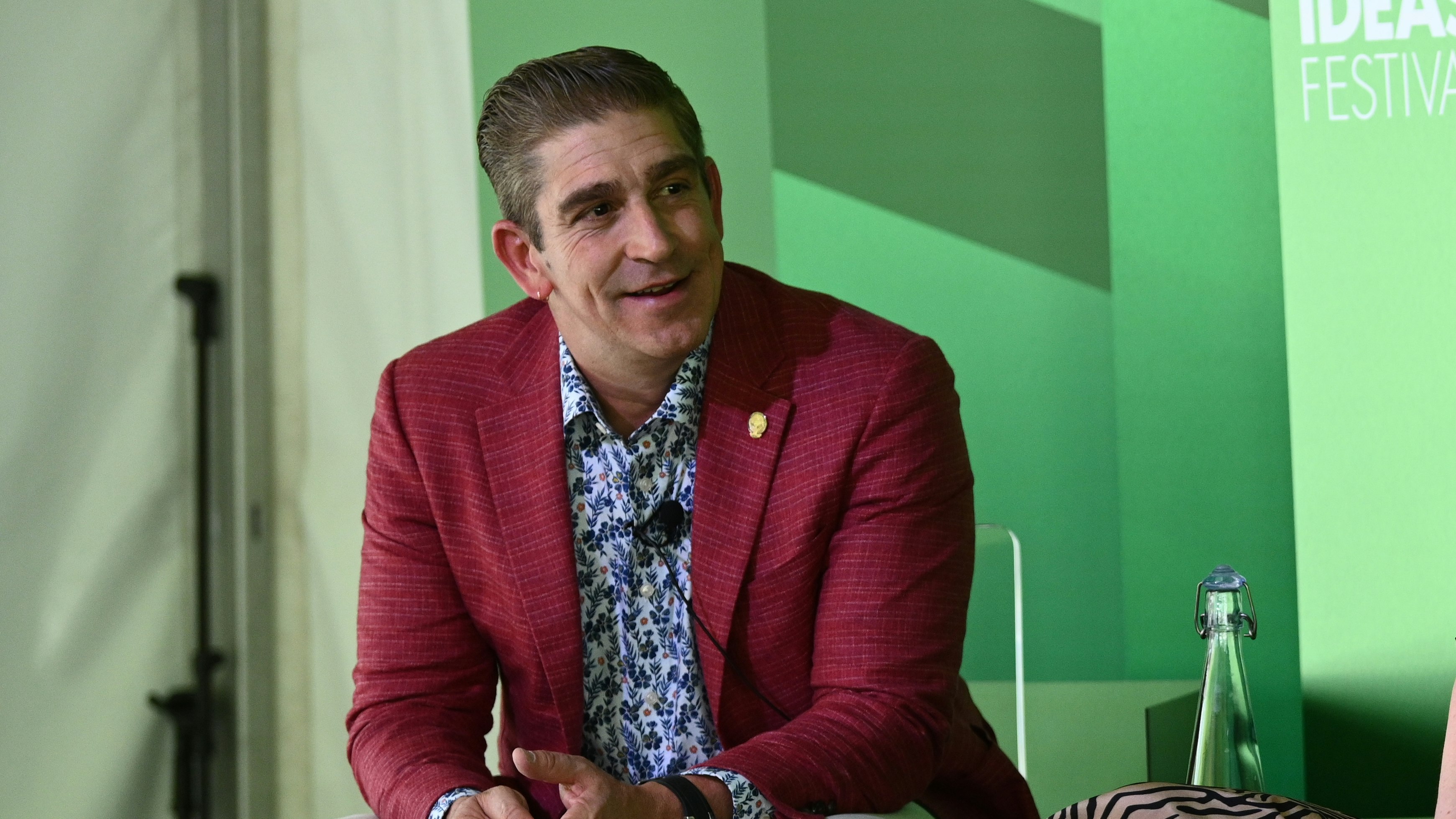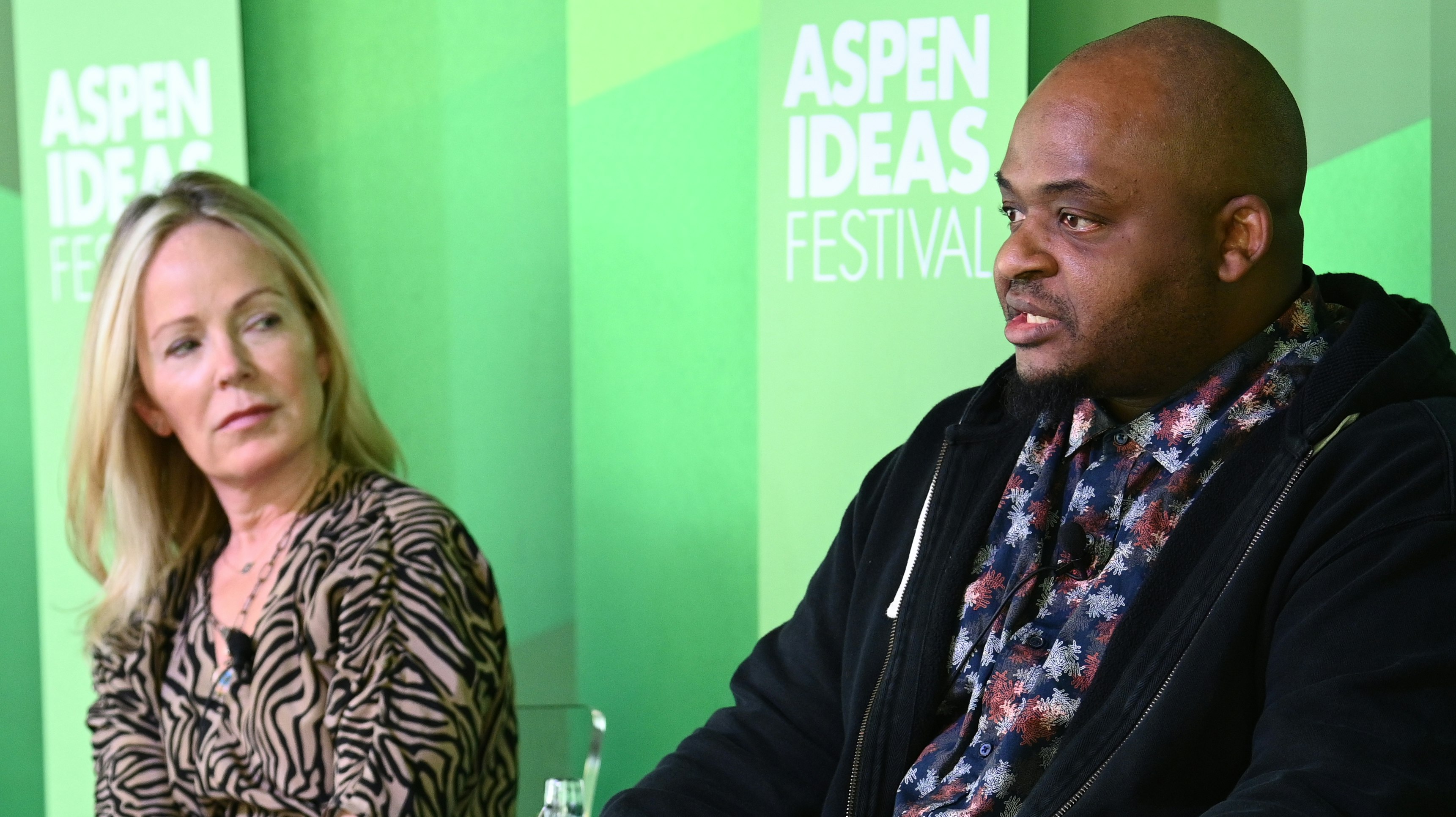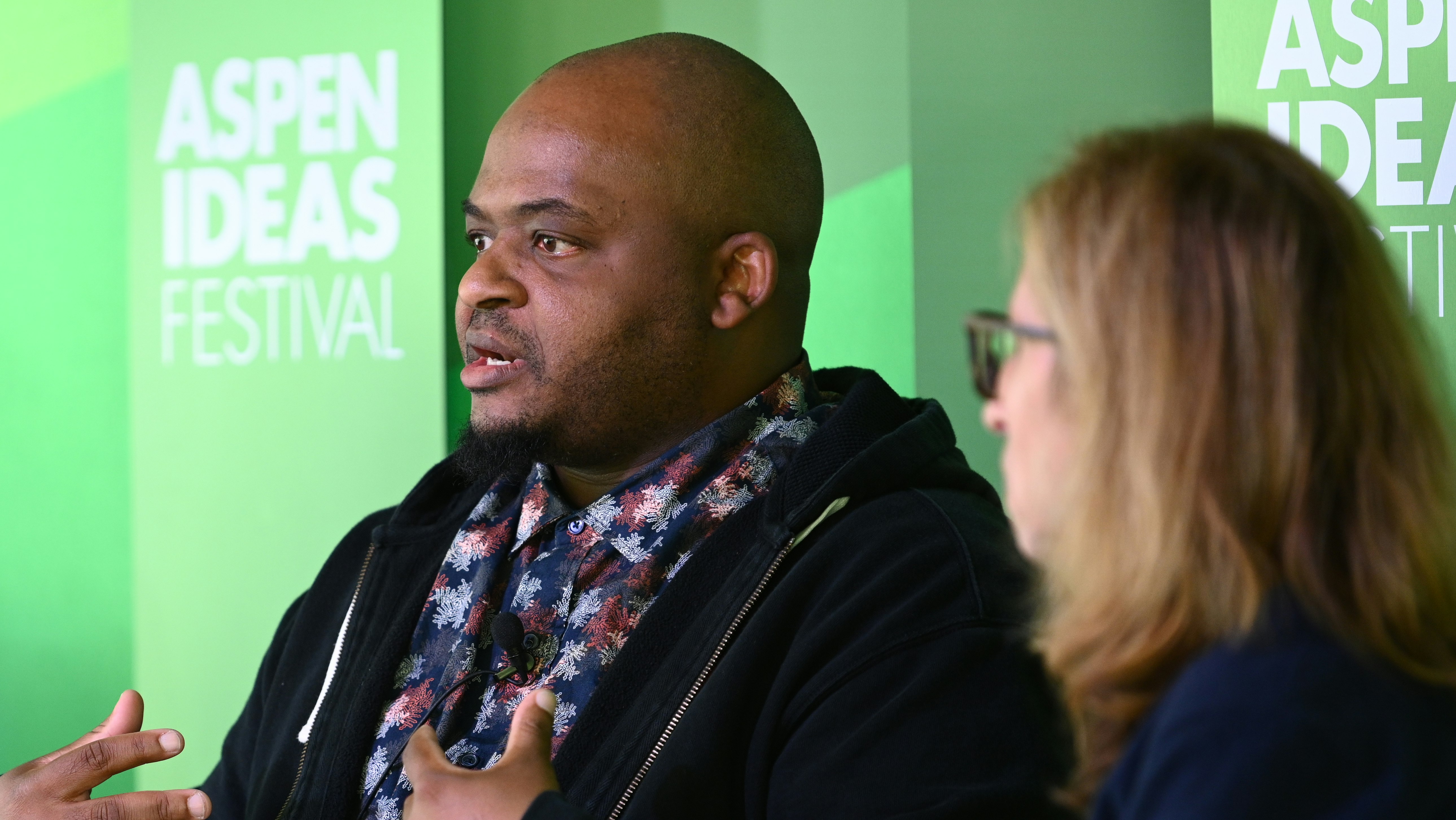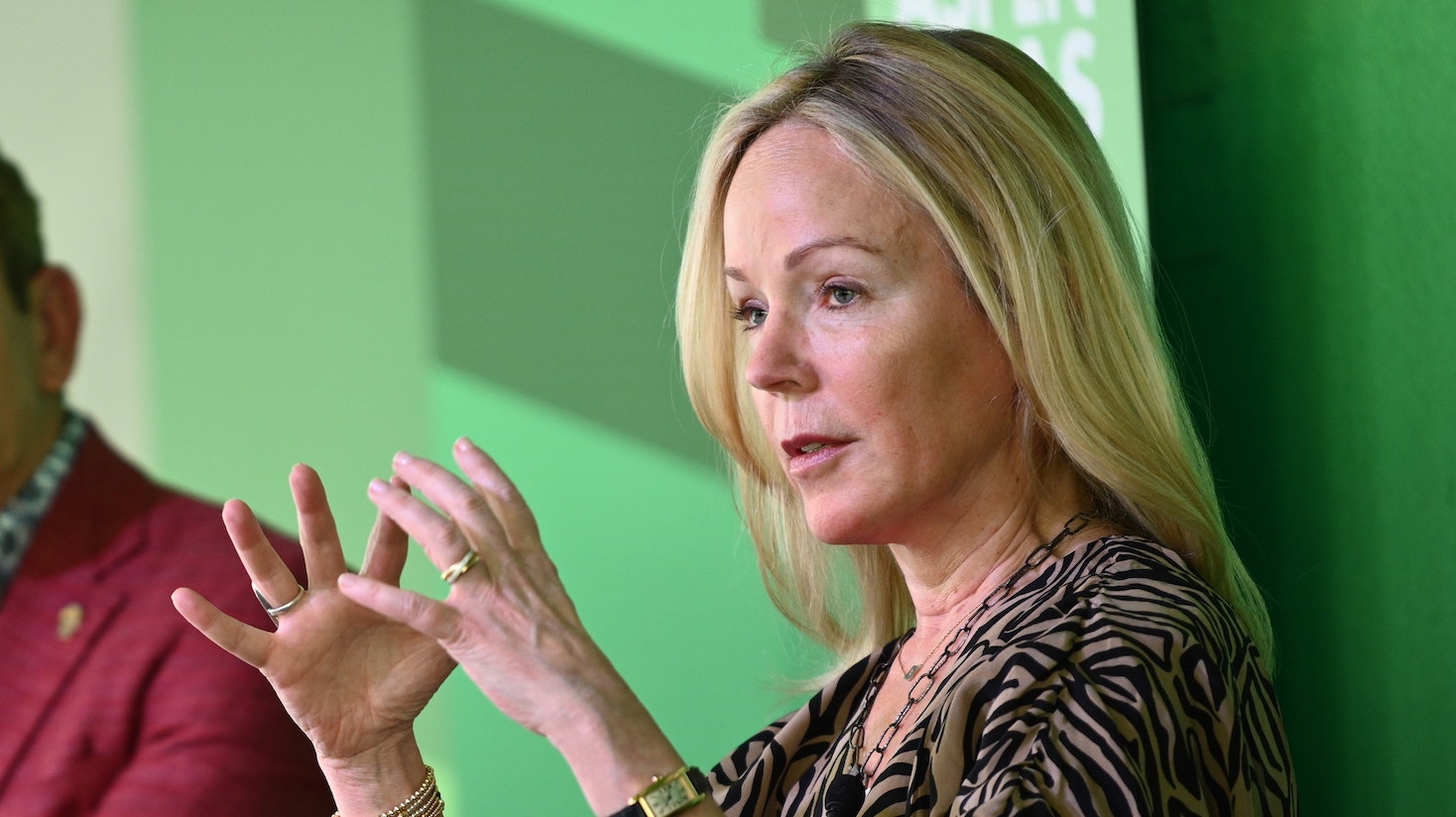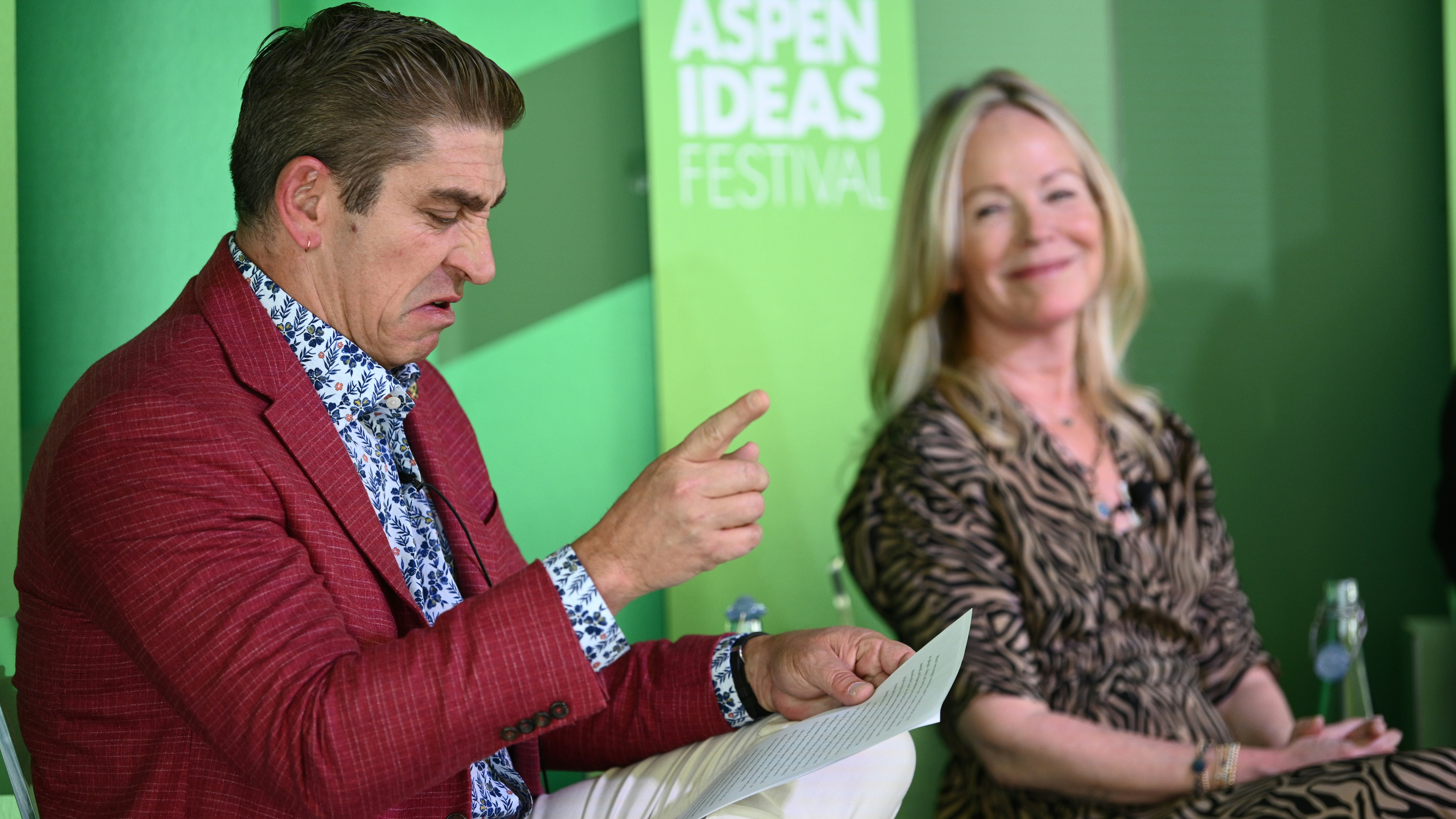
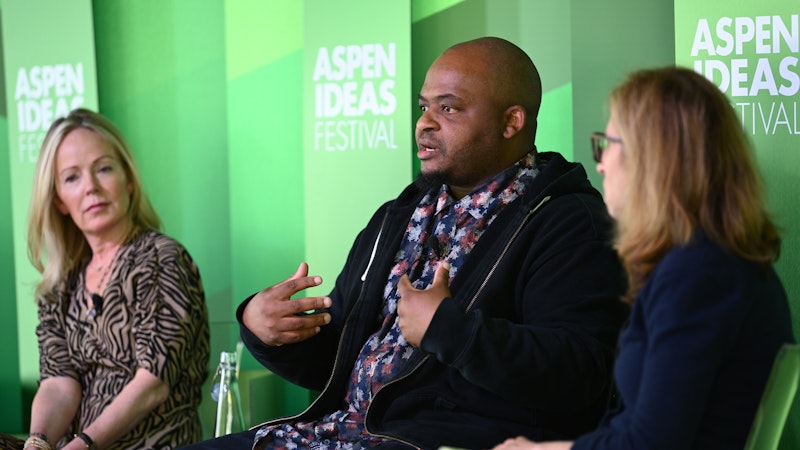
The Art of the Memoir
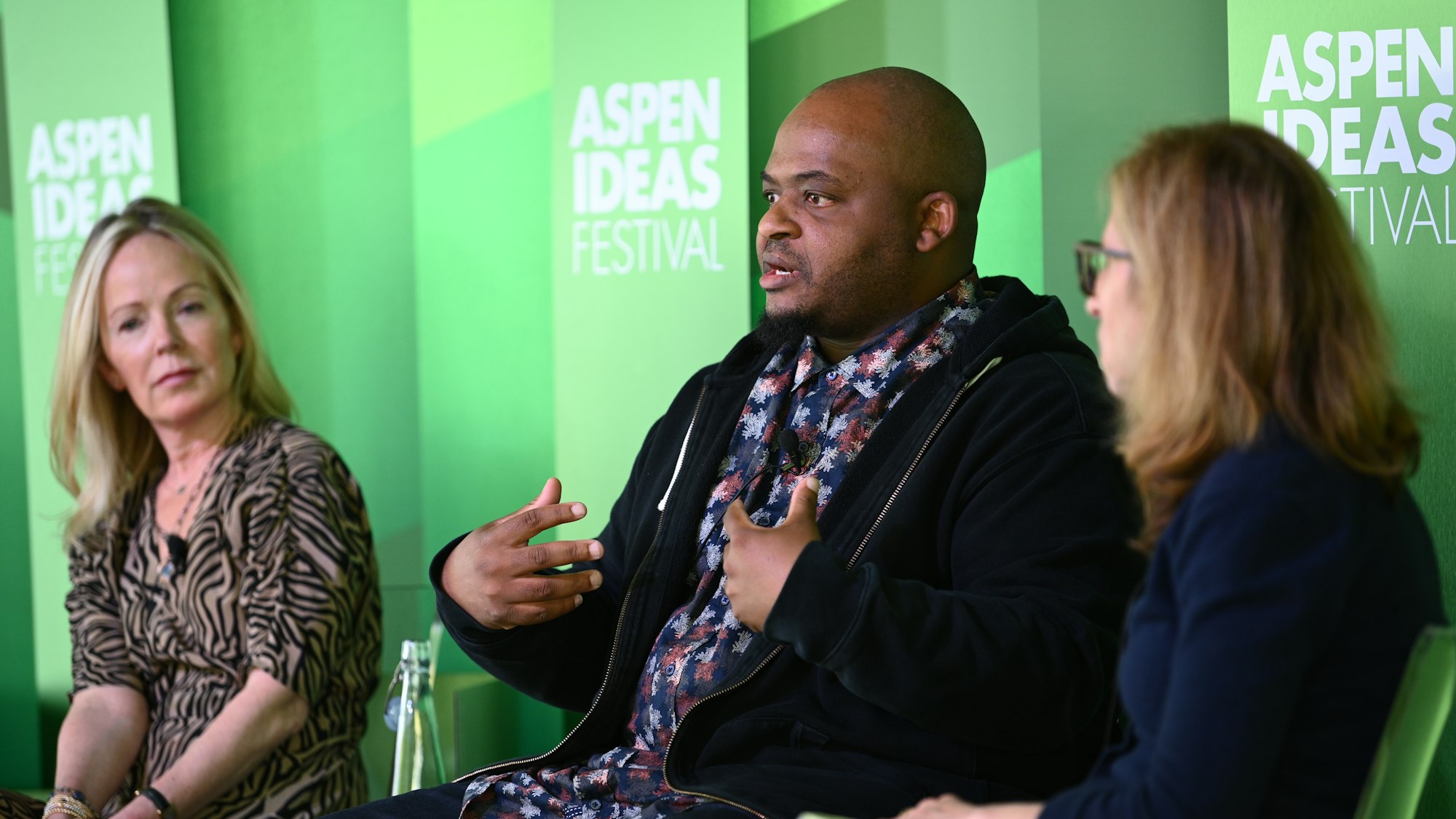
My mother was the first person who taught me how to use words to survive.
Setup
Great memoirs implicitly tackle the subject of identity, weaving together a cohesive self from a jumble of experiences, influences and, yes, imperfect memories. But what propels authors to write a memoir, and what compels us to read them? Join three masters of award-winning and best-selling works who dared such examination and reflection as they discuss the risks and rewards of writing a memoir.
- 2019 Festival
- Arts
Why write a memoir?
Publishing a memoir means sharing deeply personal stories for anyone to read. Sure, memoirists get to choose what they write, but it usually takes a pretty compelling story to make it on bookshelves. So why would anyone share stories that could bring all sorts of scrutiny to not just their lives, but the lives of people close to them? Writer Richard Blanco explains:
Memoirs allow artists to discover things about themselves. Some confront childhood trauma, others broken relationships or newfound joy. But Blanco says the act of writing, rewriting, and codifying those feelings in a text helps bring clarity and closure.
Seek honesty, not truth
Our memories are fickle at best, and if you ask two people to describe the same event you’ll always get different versions. Author Kiese Laymon says that when readers approach memoirs expecting hard facts, they’re bound to be let down. Instead of some quixotic pursuit of truthfulness, Laymon explains that he strives for honesty and integrity in his writing:
“It hurts when your version of truth collides with somebody else’s version of truth,” says Laymon. By transcending a strict adherence to truth, memoirists can write a story that, in some ways, more honestly reflects a situation than an attempt at truthfulness ever could.
Is there a ‘greater good’ for memoirists?
Do memoirists think of the impact that their stories might have? When they’re writing a work, do they think of how it will be received and what good might come of it? In response to an audience member wondering what kind of thought goes into impact, the whole panel weighs in:
This excerpt has been lightly edited for clarity
-
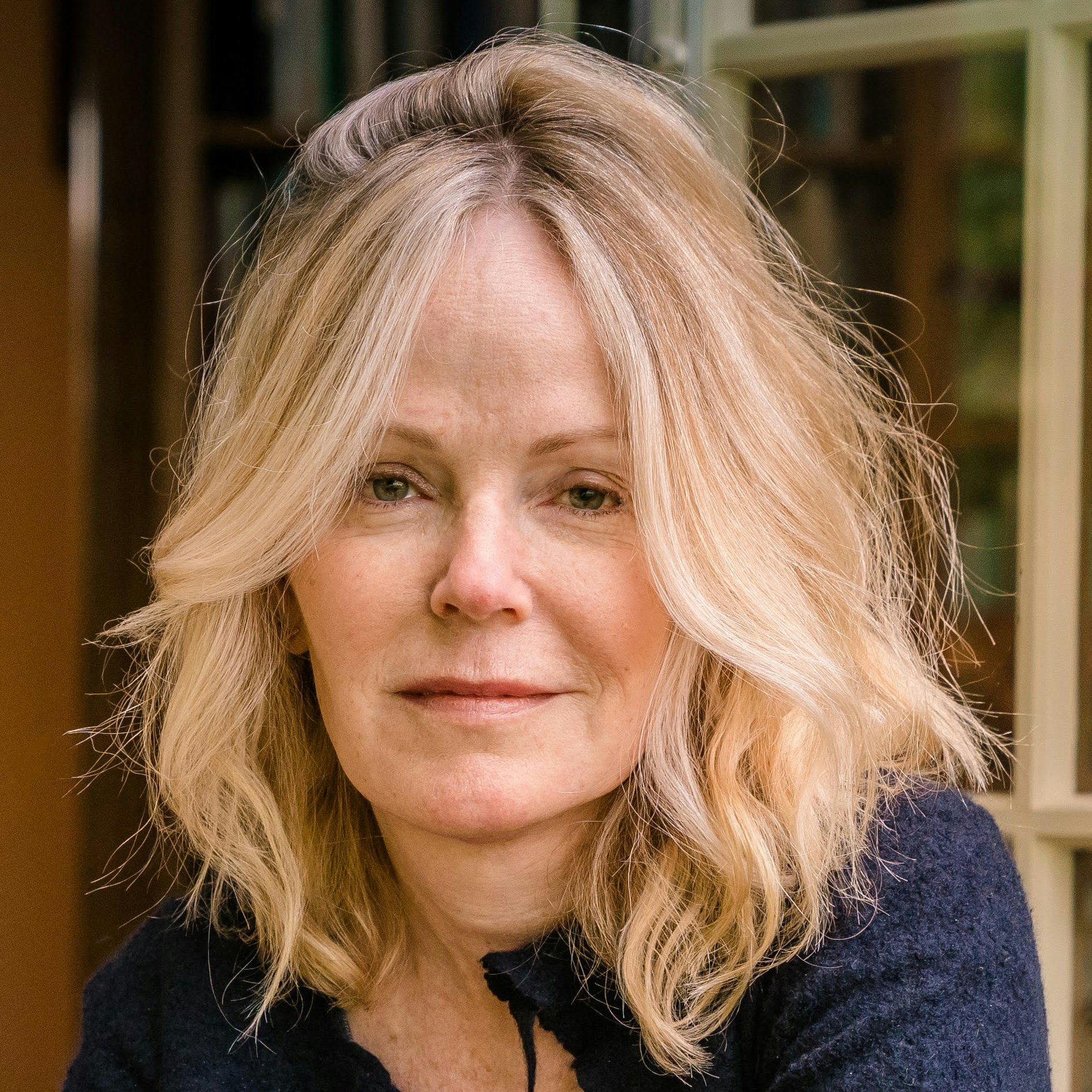
Dani Shapiro: If I was sitting down to write thinking I was going to help people, I wouldn’t write as well… I’m trying to connect with people. This new book of mine is helping people, but as I was writing it, I was trying to tell the story and trying to place the story in a larger context. So there’s an extraordinary experience in realizing there’s a purpose to it, but a self-consciousness can set in if a writer sits down to think, ‘Now I’m going to sit down to help people.’
-
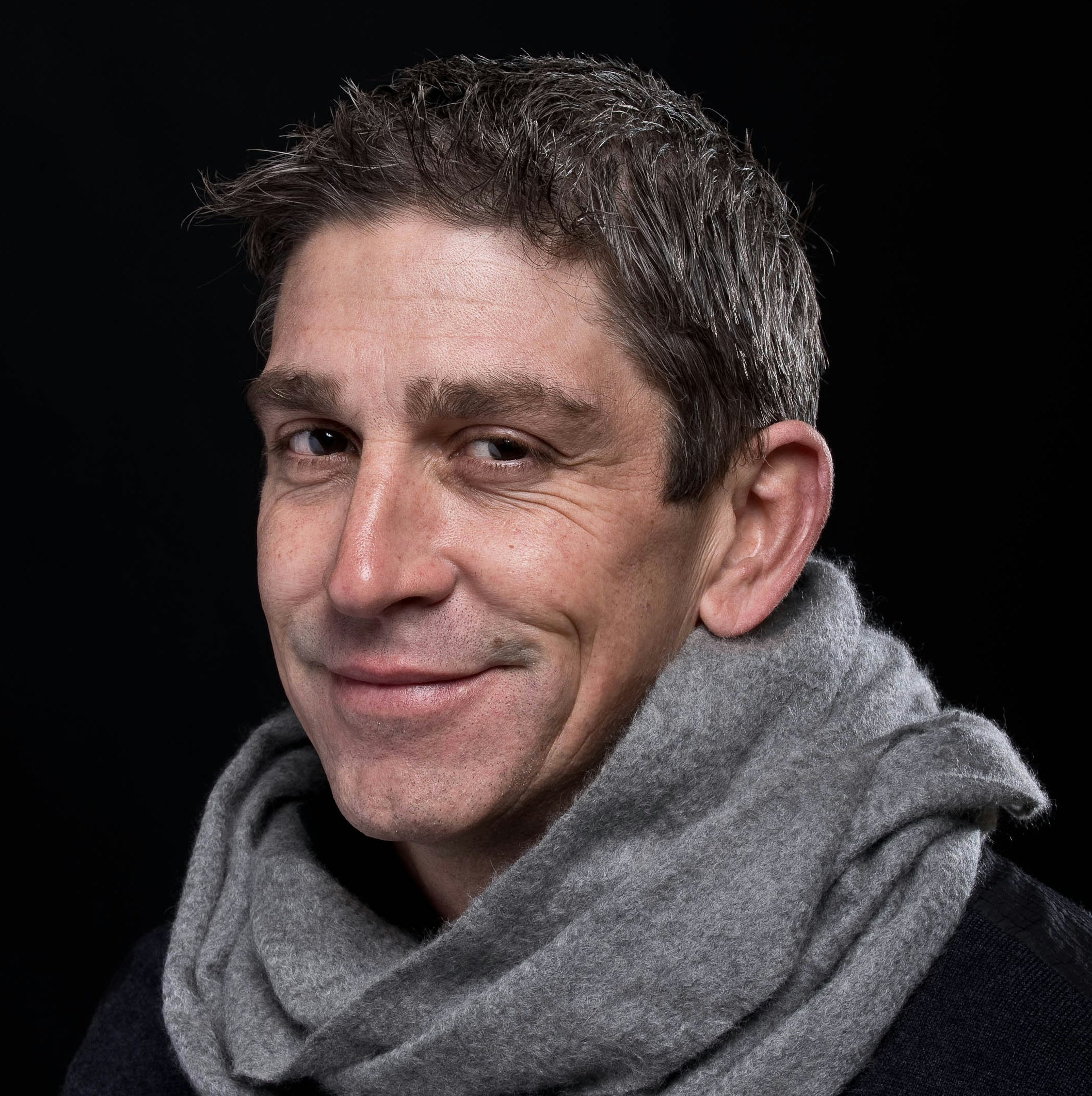
Richard Blanco: I think ‘connect’ is the perfect word.. and when those moments happen it’s great, but that’s not what keeps us writing per se. It is, though, just knowing and trusting that your honesty and life will be a mirror to someone else. That’s why we do what we do, but not consciously
-

Erika Mallin: [to Laymon] But do you feel that way?
-

Kiese Laymon: I definitely feel like it’s for a greater good… The act of writing books to [James] Baldwin, to my mother, to Margo Walker Alexander, is a liberatory act because I was aggressively taught not to see those people as audience to whom I could write. Your audience sort of dictates, I think, the integrity and calibrations of your art. So I’m definitely trying to write to black folks in the deep south, I’m trying to write for black folks in the deep south, with an understanding that people outside the deep south will take part in it. But I know who my primary audience is.
Hear for yourself: author readings
There’s something about hearing an author’s work in their own voice than can bring a whole new meaning to a story. Hear Kiese Laymon, Dani Shapiro, and Richard Blanco read excerpts from their own works:
Learn More
Additional Information
Explore More
Arts

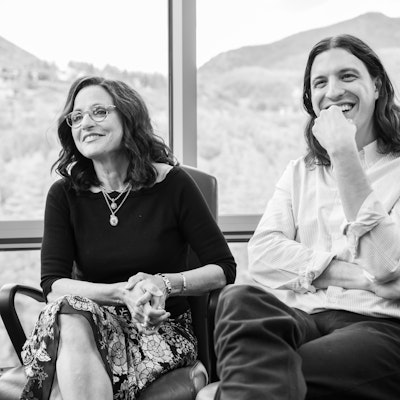
Julia Louis-Dreyfus has kept us laughing for years in her roles as Elaine Benes in “Seinfeld” and Selina Meyer in “Veep.” But her most recent work has her shifting from comedy...


It’s a tough time to try and express the complexity of life honestly. Writer Chimamanda Ngozi Adichie doesn’t shy away from truth-telling and believes we should all step up an...


Creativity is as intrinsic to our species as any of our basic instincts, says Debbie Millman, designer and curator. But for millions of people in the United States, the abilit...


The entertainment industry has had to pivot and refresh time and again to adapt to constant changes in format, business models and attention spans. Somehow, producer Brian Gra...


Millions of children across America don’t have art classes in school and don’t grow up going to art museums and galleries. They might be hours away from the closest museum, or...

October is National Book Month, and we’re celebrating by looking back at some of our favorite conversations about reading and writing from the Aspen Ideas Festival and Aspen I...

Jump in by watching our 15 most popular talks of all time. From black holes to jazz and civil rights to psychology hacks, we've collected the talks that remain audience favori...

The arts are not just forms of expression, but powerful forces that shape culture and the human experience, both reflecting and influencing our world. Join renowned artists, w...

As one of the foremost reporters of his generation, Nicholas Kristof has been witness to century-defining events and atrocities around the world. How has he managed to weaponi...


Amid seismic shifts in the entertainment world, Oscar-, Golden Globe- and Emmy-winning Brian Grazer has managed to keep pivoting to new ways to tell stories in movies, TV and...

In the last 30 years, conglomerates from Amazon to Netflix to Spotify have changed the way we interact with media, books, fashion and music. Creatives are struggling to mainta...

Images communicate truths, and also lies. Learning to pay attention to photographs can help us discern. An art and cultural historian and a visual artist host a master class o...

Hurray for the Riff Raff is more than Alynda Segarra’s musical moniker; they spent their youth hopping trains across America, capturing that life in youthful poetry then and a...

When people in prison are given creative outlets, the impact is life-changing. Hear from a hip-hop artist setting up prison recording studios, an architect designing more huma...

Whether as Elaine Benes from “Seinfeld” or Selina Meyer from “Veep,” Julia Louis-Dreyfus delivers laughter. But in the upcoming film “Tuesday,” she communicates with death — i...
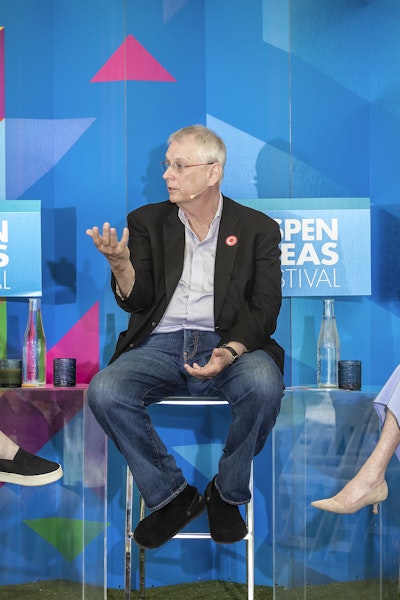
You may not know what typeface this sentence is written in, but typography is crucial to how we convey, process and retain information. How has the form evolved? Hear from des...

Here’s a radical proposal: Make access to the arts free for everyone. Leaders on a mission to bring Americans into art spaces discuss the transformative power of the arts, and...

Maybe all of us feel like we’ve been raised by Hollywood, but being raised in Hollywood is a different kind of drama. Actor, producer and director Griffin Dunne joins friend (...

Rosalind, Viola, Portia and Beatrice are unforgettable roles in Shakespeare’s plays. But there were real women behind these characters — women who spoke out against patriarchy...










